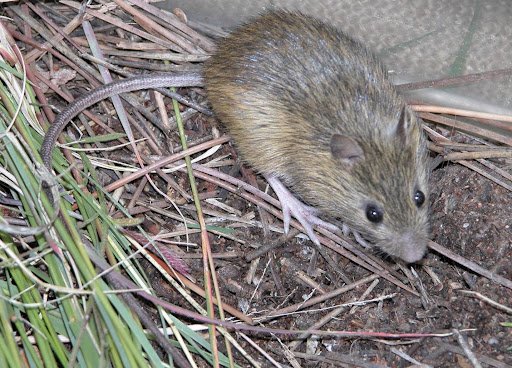Winter is a Nope: Naturalist Notes
How many of you have ever wanted to just skip winter? You might not like the cold or the shorter days and would just prefer not to deal with any of it. How many of you dreamed of sleeping away the winter months? Well, some other mammals agree with you, but not as many as you might think.
Most of us grow up reading children’s stories about how bears would fatten up in the fall, sleep away the winter, and awake in the spring. Well, those books paint a very different picture of how hibernation truly works. Also, bears are not actually true hibernators, but we’ll come back to that.
Hibernation is a survival technique for animals to conserve energy to survive harsh weather conditions (not just cold, some tropical animals hibernate during the dry season) and/or lack of food. It involves physiological changes like a drop-in body temperature, heart rate, respiratory rate, and slowing of metabolism. So, for animals that hibernate their body goes through some major changes. It is also very dangerous for animals, they may die during hibernation from lack of fat, severe weather, or premature awakening. Plus, they are more vulnerable to predators.
Hibernation is not just spending all winter in a state of unconsciousness. Hibernating animals wake up to do things like move around, eat food that was cached, go to the bathroom, and even sleep. Sometimes the animals are awake for a few hours but it could be longer. Waking up during hibernation is risky business though. It uses a lot of energy from stored fat.
I love looking at the stats of hibernating animals, and seeing just how much their bodies change. So let’s take a closer look at Michigan’s hibernators. Michigan has only a few true hibernators: The woodchuck, 13-lined ground squirrel, meadow jumping mouse, and a few bat species.
Woodchuck or groundhog.
Woodchucks, or groundhogs, hibernate because their preferred food source of herbs and grass is unavailable during winter. After gorging themselves all summer long, woodchucks settle down in their burrows in October/early November for hibernation. Their body temperature during the summer is around 95℉ but drops to 43℉. Their heart rate slows from 100 beats per minute to 15. In hibernation, a woodchuck may breathe only once every six minutes. They will lose about 30% of their weight by the end of winter.
13-lined ground squirrel. Photo credit: Ohio DNR.
13-lined ground squirrels entered their hibernacula, a fancy word for the location animals over winter, in September. Before going underground, they try to gain 4 grams a day in the fall. That is a lot for a squirrel that is only 150 grams in total. In active months their average heart rate is around 200 beats per minute. During hibernation, it drops to less than 20!
Photo credit: U.S. Fish and Wildlife.
The meadow jumping mouse, or the mouse with the really long tail, begins hibernation around September/early October.
The little brown bat.
A little brown bat's heart rate drops from 200-300 beats per minute to 10 beats per minute, and it may go minutes without taking a breath.
All of the animals I have talked about thus far are relatively small. That is because smaller animals have a higher surface-area-to-volume ratio, meaning that they are more susceptible to losing heat. Being warm-blooded, or endothermic, means using a lot of energy to maintain a body temperature. This is why in hibernation, animals drop their body temps so they don’t waste energy trying to maintain them, and curl up to minimize heat loss.
Finally, let’s talk about bears. A bear's heart rate drops to about 4 beats per minute and they only take one or two breaths per minute when in their dens in the winter. The difference with bears is their body temperature does not decrease like a small mammals’. All true hibernators are not easily roused from hibernation, but a bear is because their temperature doesn’t drop. They do, however, go longer than true hibernators without waking. Most other hibernators wake up every 30 days or sooner. Bears can hole up in their dens and go without eating, drinking, exercising, urinating, or defecating for as long as 100 days. It is because of this the U.S. National Park Service suggests they are super hibernators. Others say they are just winter sleepers because they are easily woken up. So, bears are a little confusing.
Now after learning more about hibernation, do you still want to skip out on the winter months?
Submitted by Cathy Wesley, Naturalist, October 2022





